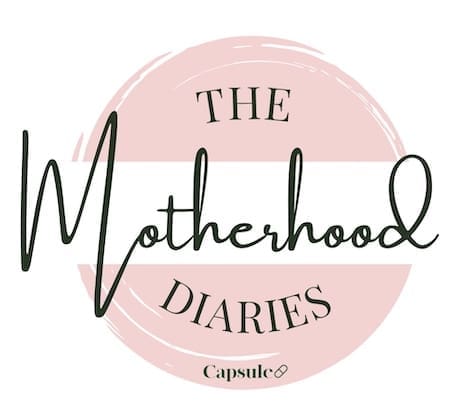
Welcome to our new series, The Motherhood Diaries – a safe space for you to share your experiences, advice, hopes and heartbreaks. We’ll be hearing from industry experts giving practical advice alongside Capsule readers (You!) sharing your firsthand experiences. We’re looking at everything from fertility, trying to conceive, pregnancy, the fourth trimester, newborns, toddlers, raising children and teenagers and everything in between!


If you have a topic you’d like to discuss, share your thoughts, experience or advice about, drop a line to [email protected] with ‘Love’ in the subject line. All stories that are published will win three BOOST LAB serums following a Skin Advisor’s bespoke recommendation, worth $104.85.


Parenting coach Justine Lamont is a former lawyer who now helps Kiwi families of all ranges with practical, evidence-based parenting skills. She writes for Capsule about how parenting has changed in the past generation and why parents in 2022 are facing a whole set of challenges from previous generations.
Many parents who are doing a great job are feeling more stressed and alone than ever, and research out of the US in 2020 found 66% of parents asked rated parenting harder than it was 20 years ago. Here are some of the reasons why parenting isn’t like it used to be back when we were growing up in the 1980s & 1990s.
Expectations On Parents Are Greater
These days parents don’t just want to raise children to grow up and leave the home, they want kids to be really good at everything. A recent article talked about how it was becoming increasingly common for parents – mainly mothers – to take a year off work to support their children in the final year of high school to help them get the grades they need to get into university.
We can do a lot to help relationships when we reduce the expectations – both on ourselves as parents and on our children. We all want good things for our children and we need to balance this with a life where they get to enjoy freedom to be a kid, be average at some things and find the things that they are good at.
Parents who are putting pressure on themselves to be all things to their kids can be setting up resentments waiting to happen. We all have bad days and we are generally doing the best we can with the skills we have.
The World Runs At A Much Faster Pace
I went on a trip in my twenties and sent my mum a thing called an aerogramme. Many people reading this won’t know what that is but it was a thin letter that you wrote on and it arrived back home in 4-7 days. Now we take for granted that we can send and receive instant messages whenever we want. Great for keeping in touch… but it means having to constantly be on the smartphone or computer. This means that we have less time than ever before as we try to keep up with the pace.
The faster pace of life is especially hard when we have little kids because developmentally they need things to be at a slower pace and looking after them takes a lot of time. The pace of life means we have to make a point to slow down to be in the moment with our families. I like what Steve Biddulph says about this: “Hurry is the enemy of love.”
It Still Takes a Village… We Just Don’t Have One Anymore.
We tend to parent on our own with fewer people in our village. The idea we will be able to give everything we need to our kids doesn’t add up. Humans were never meant to be parents on our own and this is why we lived in actual villages. These days, parents don’t tend to live near their relatives and so they have fewer experienced parents on hand for moral and practical support. When we don’t have folks who can give us a rest and help out with the kids, we feel the loss.
We need to make our own villages from our local community. Adopt a local grandparent or aunty (doesn’t have to be an actual aunty). Joining clubs, participating in school activities helps to create our new village.
It’s hard for working parents to be involved locally but it’s important. There’s a lot of research that backs this up – kids who are strongly connected to their community are likely to be more resilient and have better outcomes.
The Arrival Of Social Media… And Online Predators
Having an awareness and knowing how to protect kids from something that didn’t even exist when many of us were children is a whole new thing for parents. But what parents do have is a lot of life experience, so we can use this to help kids make sense of the messages in social media.
We know that there are violent and disturbing clips that pop up in app that kids use and even streaming of things none of us would ever want adults to see, let alone our children. There are plenty of opportunities for age-appropriate conversations to ask kids what they think and why. We need to find a way to make sure we get our values in and for kids to know what a safe places are, both in person and online.
We also have to let our kids know that not everything people say in person or online is true. Sometimes we forget that they can believe this stuff and we have to be the ones to neutralise the toxic messages.
Like Everything, Parenting Costs A LOT More Than It Used To
The cost of living means that we are spending more on housing and living expenses so having a family is something many people put off altogether, or choose to have just one child. The pressure to return to work after children is also on both parents as families need more money to make ends meet.
There are other costs that are optional but we might feel pressured into buying. We don’t need a lot of the things that are marketed to us as ‘necessities’ when we become parents. The box toys come in is often as interesting to a child than the toy itself!
The other things that can cost a lot are gadgets to make them sleep or dressed up as educational. It helps to draw up a list of what you can find from other people you know who have had kids, what you want to buy new and what are a few nice things to have. Don’t stress about it, you don’t need nearly as much as you think you will.
The School Of Parenting
Parenting in 2022 is like a curriculum that we study and learn about. It hasn’t always been this way. Parents today have a huge amount of information available online which can help to make life better for families, but the down side is that the volume of the information can be overwhelming.
A key idea we used to think was that intelligence was fixed and you couldn’t do much about it. But what we know now is that this is not the case, thanks to the concept of neuroplasticity. The brain is a muscle and it gets stronger with use, so we can practice things and get better at them.
Parenting is about weaving in a habit of flexibility, it’s a life-long curriculum that we can learn across our whole life, so we don’t need to get it right straight away! Parent coaching is about helping parents use this thinking to do the best they can with what they have.
We are going to make a lot of errors in our parenting, that’s a given. Modelling mistakes and how to repair relationships is an important part of this. There is no such thing as a perfect parent. Amen.
We Expect Our Lives To Stay The Same.
You’ve probably heard some of your friends say “When I have kids my life is not going to change.” The population as a whole are having children at an older age. Often people are involved in work or going to live in different places and when we know from our previous life experience that there are way more interesting things to do than looking after kids, we can find that it’s hard to make the transition into being a parent.
A lot of being a parent involves sacrificing ourselves and our lives to make room for the time and mental demands of having kids. Previous generations had a different expectation of what parenting meant and so for us the distractions and entertainments on offer can make child rearing seem much more burdensome by comparison.
We Aren’t Around Children Very Much… Until We Have Our Own
Previous generations had greater exposure to wider family groups and could see and share in the care of children over several different developmental stages. Families are smaller today and children grow up with fewer opportunities to see what it’s like having a baby or young child around them. This means we stay in our birth cohort and don’t get important experience about the different developmental stages until we are raising our own children.
What’s normal is going to depend on our own children and their temperament but what is developmentally normal is very helpful for parents to understand. This is an important piece of life experience, that we used to take for granted which isn’t a given anymore.
Justine Lamont is a Kiwi and a parenting coach who writes about the struggles of modern parenting. A former lawyer, she retrained when she was living in London, while her children were young. With over 15 years’ experience she works with families across all age ranges with practical, evidence based parenting skills.

